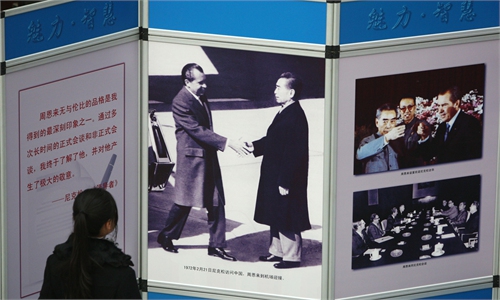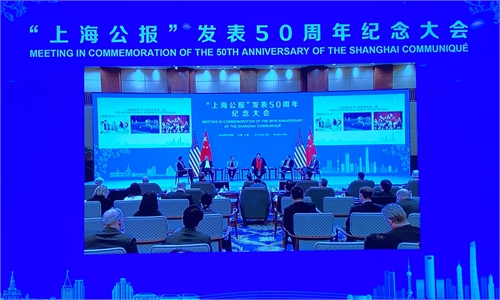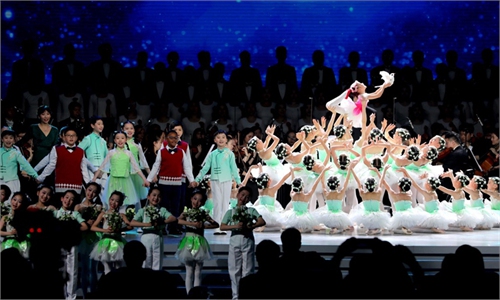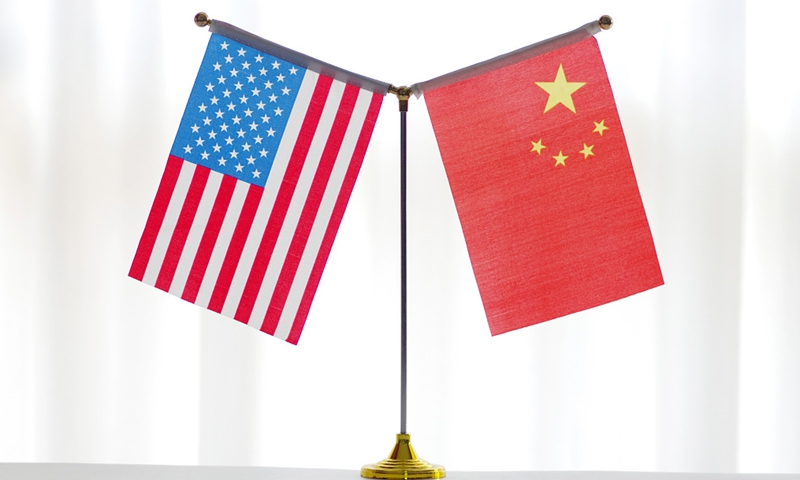
China US File Photo:CFP
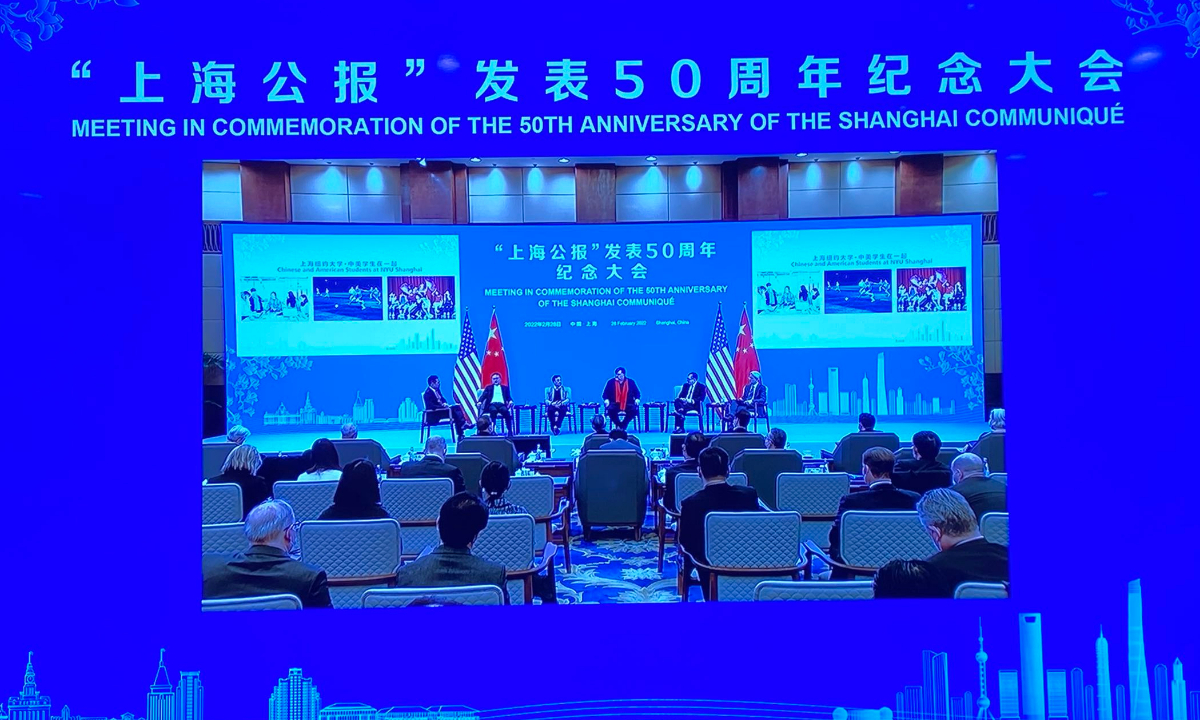
Guests have a discussion at meeting in commemoration of the 50th anniversary of the Shanghai Communiqué in Shanghai on February 28. Photo: GT
In a virtual speech to a commemorative event marking the 50th anniversary of the signing of the Shanghai Communiqué, Chinese State Councilor and Foreign Minister Wang Yi called on the US to respect the one-China principle rather than hollow out the political cornerstone of the bilateral ties.
The two countries issued the communiqué on February 28, 1972, the last day of then US President Richard Nixon's historic visit to China. In the Shanghai Communiqué, Washington acknowledged that "there is but one China and Taiwan is part of China." It is the first diplomatic negotiation between the two countries since 1949, paving the way for the establishment of diplomatic ties.
Although Taiwan is not currently the focus of the world, the US and Taiwan's secessionist authority are colluding to hype Taiwan's security amid the Ukraine crisis. Former Secretary of State Mike Pompeo also announced he would visit Taiwan.
Wang urged the US to honor its political commitment to China and stop supporting Taiwan secessionists and stop interfering in China's internal affairs to safeguard peace and stability across the Taiwan Straits and safeguard the overall interests of China-US relations.
"The Taiwan question is the core of the Shanghai Communiqué, and the one-China principle is the cornerstone of China-US relations," Wang said.
Wang Wenbin, the spokesperson of the Chinese Foreign Ministry, said on Monday that China hopes the US works with China to draw on the wisdom of the Shanghai Communiqué and find the right way of coexistence on the basis of mutual respect and win-win cooperation.
In the 1970s, the Taiwan question hindered the normalization of China-US relations. Analysts said although China and the US were not completely in agreement on the resolution of the Taiwan question, the Shanghai Communiqué reflected then Washington's respect to China as the two sides sought common ground while reserving differences. The Biden administration still needs to absorb the wisdom from 50 years ago.
The purpose of Wang Yi stressing the Taiwan question is clear, which is to ensure that the US does not make mistakes or misjudge the political cornerstone of China-US relations, Li Haidong, professor at the Institute of International Relations of the China Foreign Affairs University, told the Global Times on Monday.
As long as this cornerstone is in place, many problems and disputes can be effectively managed, Li said.
Diao Daming, an associate professor at the Renmin University of China, told the Global Times on Monday that Wang Yi made China's position clear to the US in a frank manner, hoping Washington could return to its original aspiration of ice breaking 50 years ago.
Diao said if the US wants to maintain a healthy and stable relationship with China, it is essential to respect each other's sovereignty and territorial integrity. And only on the basis of a correct understanding and handling of the Taiwan question can there be subsequent issues of mutual respect, win-win cooperation and shared responsibilities as major powers.
Analysts said by sorting out the ins and outs of the Taiwan question and the US' fickleness, more people will be able to distinguish right from wrong, especially as an alarm to US' possible manipulation this year.
"The US is likely to step up arms sales to Taiwan this year, and may also create more issues during Taiwan's local elections in November," Diao said.
With both the G20 and APEC summits to be held in the Asia-Pacific this year, Taiwan is likely to play a bigger role in containing the Chinese mainland as Biden ramps up his Indo-Pacific strategy, Diao said.
The expert said many problems in China-US relations are mainly due to the fact that the US hopes to maintain regional hegemony in the Asia-Pacific region, and maintain certain leverage to China with Taiwan as a pawn.
Diao said strengthening communication between China and the US is positive for world stability. Wang Yi's statement is largely a call in response to the real needs.


